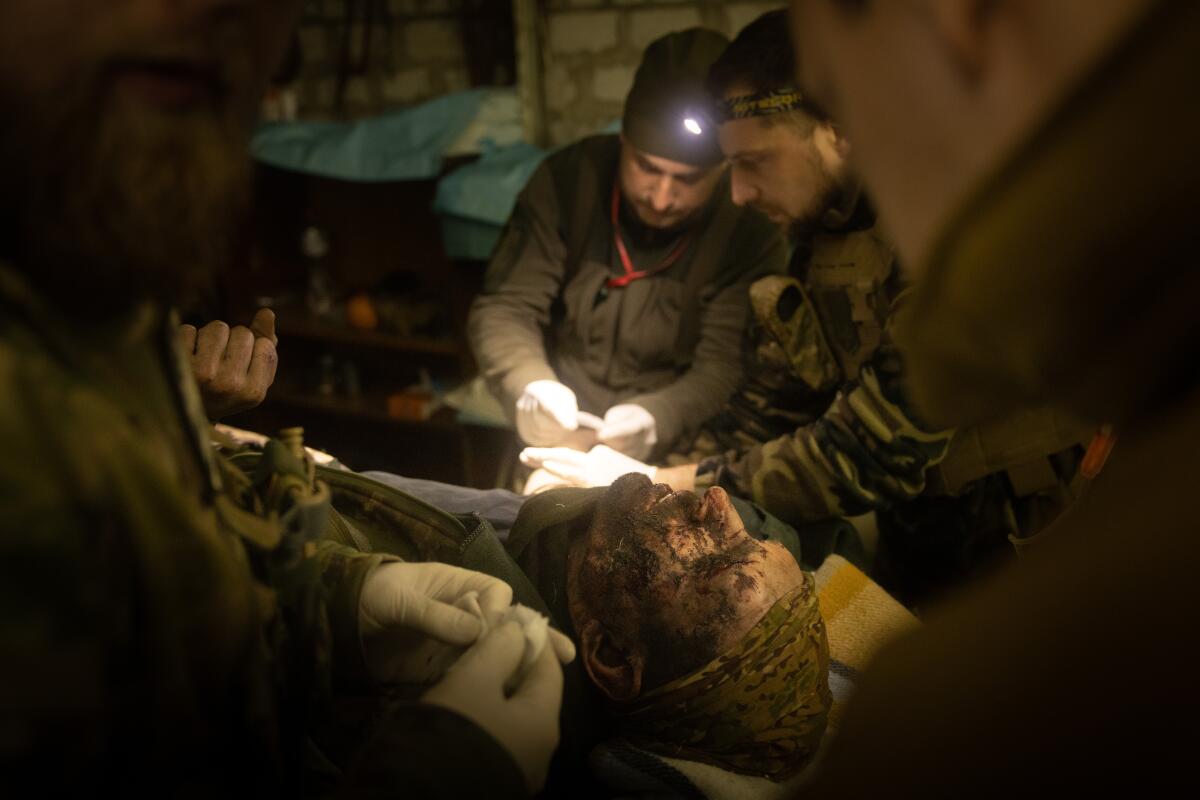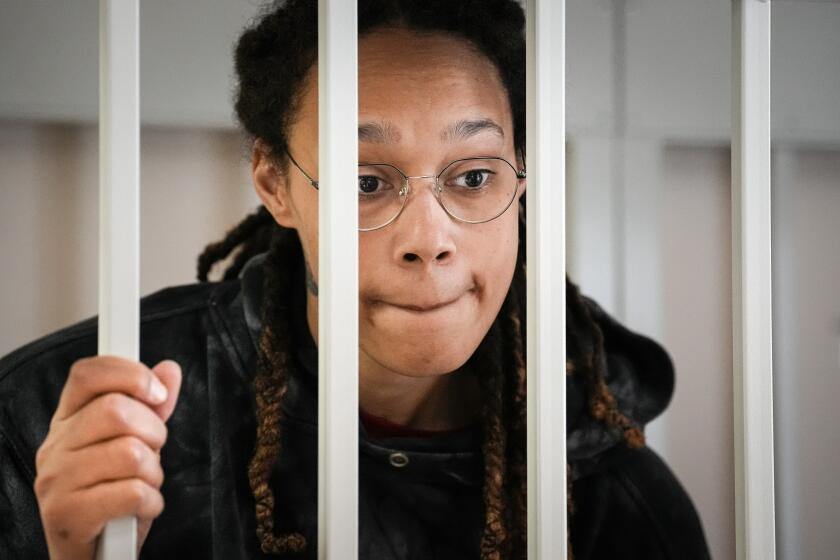U.S. intel chief thinking ‘optimistically’ for Ukraine forces

- Share via
KYIV, Ukraine — The head of U.S. intelligence says fighting in Russia’s war in Ukraine is running at a “reduced tempo” and suggests Ukrainian forces could have brighter prospects in coming months.
Avril Haines alluded to past allegations by some that Russian President Vladimir Putin’s advisors could be shielding him from bad news — for Russia — about war developments, and said he “is becoming more informed of the challenges that the military faces in Russia.”
“But it’s still not clear to us that he has a full picture ... at this stage of just how challenged they are,” the U.S. director of national intelligence said Saturday at the Reagan National Defense Forum in Simi Valley.
Looking ahead, Haines said, “honestly we’re seeing a kind of a reduced tempo already of the conflict,” and her team expects that both sides will look to refit, resupply and reconstitute for a possible counteroffensive in the spring.
“But we actually have a fair amount of skepticism as to whether or not the Russians will be in fact prepared to do that,” she said. “And I think more optimistically for the Ukrainians in that time frame.”
What does it mean to live in a Russian penal colony? Experts share insight into the hardships WNBA star Brittney Griner is likely facing.
On Sunday, the British Defense Ministry, in its latest intelligence estimate, pointed to new signs from an independent Russian media outlet that public support in Russia for the military campaign was “falling significantly.”
Meduza, the outlet, said it obtained a recent confidential opinion survey conducted by the Federal Protection Service, which is in charge of guarding the Kremlin and providing security to top government officials.
The survey, commissioned by the Kremlin, found that 55% of respondents backed peace talks with Ukraine while 25% wanted the war to go on. The report didn’t mention the margin of error.
Levada Center, Russia’s top independent pollster, found in a similar poll in November that 53% of respondents supported peace talks, 41% spoke in favor of continuing the fight, and 6% were undecided. That poll of 1,600 people had a margin of error of no more than 3.4%.
The British Defense Ministry noted that “despite the Russian authorities’ efforts to enforce pervasive control of the information environment, the conflict has become increasingly tangible for many Russians since the September 2022 ‘partial mobilization.’”
“With Russia unlikely to achieve major battlefield successes in the next several months, maintaining even tacit approval of the war amongst the population is likely to be increasingly difficult for the Kremlin,” it said.
In recent weeks, Russia’s military focus has been on striking Ukrainian infrastructure and pressing an offensive in the east, near the town of Bakhmut, while shelling sites in the southern city of Kherson, which Ukrainian forces liberated last month after an eight-month Russian occupation.
In yet another show of Western support for Ukraine’s efforts to push back Russian forces and cope with fallout from the war, U.S. Undersecretary of State for Political Affairs Victoria Nuland on Saturday visited the operations of a Ukrainian aid group that provides support for internally displaced people in Ukraine, among her other visits with top Ukrainian officials.
Nuland assembled dolls out of yarn in the blue-and-yellow colors of Ukraine’s flag with youngsters from regions including northeastern Kharkiv, southern Kherson and eastern Donetsk.
“This is psychological support for them at an absolutely crucial time,” Nuland said.
“As President Putin knows best, this war could stop today, if he chose to stop it and withdrew his forces — and then negotiations can begin,” she added.
More to Read
Sign up for Essential California
The most important California stories and recommendations in your inbox every morning.
You may occasionally receive promotional content from the Los Angeles Times.










